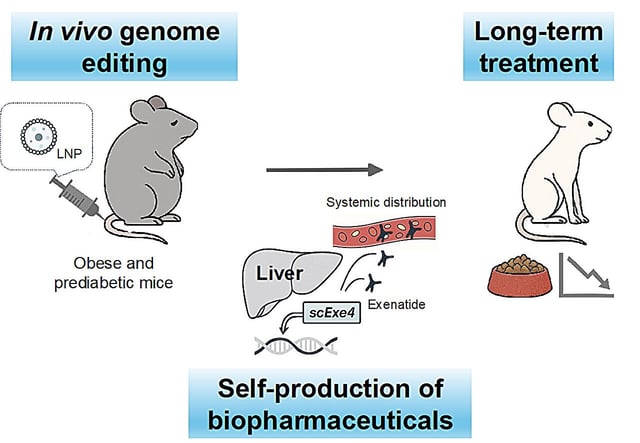Overview
- A single administration of lipid nanoparticle-delivered CRISPR inserted an Exendin-4 gene into the liver Albumin locus, enabling continuous hormone production
- Plasma Exendin-4 levels remained elevated for more than 28 weeks in treated mice, eliminating the need for repeated injections
- Genome-edited mice ate 29% less, gained 34% less weight and displayed improved glucose tolerance and insulin sensitivity compared with controls
- Next-generation sequencing and 5’-RACE analyses detected minimal off-target edits and liver enzyme levels stayed within normal ranges throughout the study
- These preclinical results set the stage for translating one-time genome editing approaches into human trials for metabolic diseases



